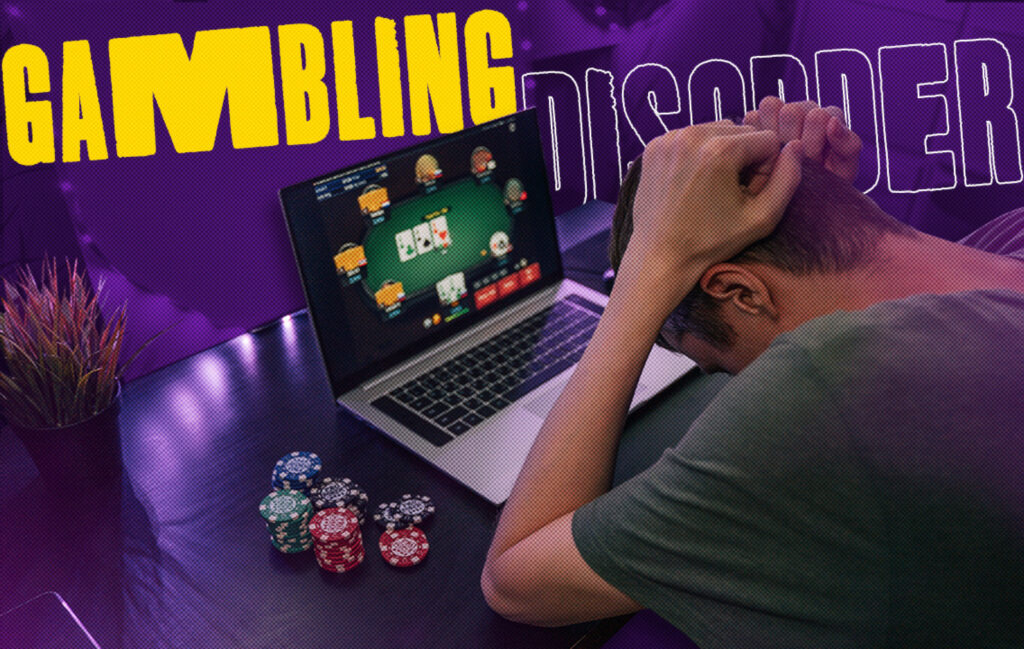
Judi Online – Gambling, in the face of challenging circumstances, can create a perilous downward spiral that leads to more financial problems. When individuals find themselves in difficult situations, such as job loss or personal crisis, the lure of gambling can be particularly tempting. Unfortunately, this decision can exacerbate their financial woes, as it often leads to reckless behavior and the loss of money that may be crucial for their well-being.
In addition to worsening financial problems, gambling in difficult circumstances can have a severe impact on mental health. While some individuals may turn to gambling as a temporary escape from their challenges, the consequences are often detrimental.
The stress and anxiety associated with difficult times can be heightened by the addictive nature of gambling, leading to a vicious cycle of increased gambling behavior and worsening mental well-being. It is crucial to recognize the potential dangers of gambling during trying times and seek healthier coping mechanisms to navigate through adversity.
How gambling can exacerbate financial problems
Gambling, often seen as a form of entertainment, can have disastrous consequences when indulged in during difficult circumstances. It can rapidly exacerbate financial problems, leaving individuals in a dire situation. By chasing the thrill of a big win, people often disregard the potential risks and consequences, leading to financial ruin.
The allure of quick and easy money entices individuals to wager more than they can afford, resulting in mounting debts, unpaid bills, and financial instability. It perpetuates a vicious cycle where individuals desperately gamble to alleviate their financial woes, only to find themselves sinking deeper into the abyss of debt and money troubles. The consequences of such actions extend far beyond the monetary aspect, as it can have long-lasting negative impacts on an individual’s mental health, relationships, and quality of life.
One of the key factors that exacerbates financial problems when it comes to gambling is the deceptive nature of winnings. The occasional wins can create a false sense of hope, leading individuals to believe that they can recover their losses and solve all their financial troubles through gambling. However, the reality is quite different. The odds are always stacked against the gambler, ensuring that in the long run, the house always wins.
This inherent disadvantage, coupled with the impulsive and addictive nature of gambling, makes it extremely difficult for individuals to break free from the cycle of financial ruin. The thrill becomes addictive, with individuals constantly seeking that next big win, oblivious to the mounting debts and financial obligations they are neglecting. In this way, gambling intensifies financial problems, pushing individuals further into the clutches of an unrelenting financial crisis.
The impact of gambling on mental health during challenging times
The impact of gambling on mental health during challenging times can be profound and detrimental. When faced with difficult circumstances, such as financial struggles or personal hardships, individuals may turn to gambling as a means of escape or temporary relief. However, this coping mechanism often exacerbates mental health issues rather than alleviating them.
One of the key ways in which gambling can affect mental health is through the development or worsening of anxiety and depression. Feelings of stress and pressure can mount when financial problems arise, and the hope of winning big through gambling may provide a temporary sense of control.
However, when losses occur, individuals may experience feelings of guilt, shame, and despair, deepening their existing mental health challenges. Moreover, the constant cycle of chasing losses and seeking the next big win can create a vicious cycle that perpetuates feelings of anxiety and depression, further deteriorating overall mental well-being.
Recognizing the signs of a gambling problem in stressful situations
Recognizing the signs of a gambling problem in stressful situations can be crucial in preventing the situation from worsening. Individuals who are experiencing financial difficulties or facing challenging circumstances may turn to gambling as a means of escape or to try and solve their problems. It is important to understand that gambling can quickly become a problem when it starts to negatively impact a person’s life.
Some key signs to watch out for include an increasing preoccupation with gambling, a loss of control over the frequency and amount of bets placed, and the use of gambling as a coping mechanism to deal with stress or emotional turmoil.
Another red flag to look out for is when someone starts to gamble with money they cannot afford to lose, such as using their savings or borrowing money from friends and family. This behavior often results in financial struggles and can cause significant strain on personal relationships. Additionally, individuals with a gambling problem may exhibit secretive behavior, such as hiding their gambling activities or lying to loved ones about the extent of their involvement.
It is important to approach the situation with empathy and understanding, as those grappling with a gambling problem in stressful situations often need support and professional help to overcome their addiction.
Seeking support for gambling addiction in times of adversity
Reaching out for support when battling a gambling addiction during challenging times is crucial for finding a way forward. It is essential to remember that there is no shame in seeking assistance; in fact, it takes strength and courage to acknowledge the problem and actively work towards change. Whether it is confiding in a trusted friend or family member, joining a support group, or seeking professional help, reaching out to others who understand and can provide guidance can greatly aid in overcoming the challenges of gambling addiction. Together, with the appropriate support system in place, individuals can begin the healing process and regain control over their lives.
When seeking support for gambling addiction in times of adversity, it is important to find resources that specialize in addressing the complexities of addiction and its impact on mental health. Mental health professionals, such as addiction counselors or therapists, can provide a safe and non-judgmental environment for individuals to explore their triggers, develop coping strategies, and create a recovery plan tailored to their specific needs.
Additionally, organizations such as Gamblers Anonymous offer a supportive community of individuals who understand the struggles of addiction, providing a space where individuals can share their experiences, find encouragement, and celebrate progress together. Seeking support from these specialized resources can be invaluable in navigating the challenges of gambling addiction during tough times and ultimately finding a path towards recovery.
Strategies to resist the urge to gamble when faced with adversity
When faced with adversity, resisting the urge to gamble can be a challenging task. However, there are several strategies that can help individuals stay away from gambling in difficult times. One effective strategy is to distract oneself with other engaging activities. Engaging in hobbies, such as painting, playing a musical instrument, or going for a walk can divert focus from the desire to gamble. By occupying the mind and body with other fulfilling activities, individuals can reduce the temptation to engage in gambling behavior.
Another strategy to resist the urge to gamble is to create a supportive environment. This can be achieved by communicating openly with family and friends about the desire to stop gambling. Sharing personal struggles and seeking encouragement from loved ones can create a sense of accountability and support. It is also important to identify and avoid triggers that can lead to gambling urges.
This may involve staying away from gambling venues or websites and finding alternative ways to spend free time. Developing a strong support network and implementing healthy coping mechanisms are essential in successfully overcoming the urge to gamble during times of adversity.
The importance of self-care and healthy coping mechanisms instead of gambling
Self-care and healthy coping mechanisms play a crucial role in managing difficult circumstances without resorting to gambling. During challenging times, it is essential to prioritize self-care activities that promote overall well-being. Engaging in regular exercise, practicing mindfulness, and maintaining a balanced diet are just a few ways to nurture a healthy lifestyle. By taking care of our physical health, we can develop a strong foundation for managing stress and avoiding the temptation of gambling.
Furthermore, nurturing our mental health is equally important in times of adversity. Engaging in activities that bring joy and relaxation, such as reading, listening to music, or pursuing a hobby, can provide much-needed respite from the challenges we face. Mindfulness techniques, such as meditation or deep breathing exercises, can help alleviate anxiety and enhance emotional resilience. By prioritizing self-care, we can develop healthy strategies to cope with stress and reduce the likelihood of turning to gambling as a means of escape or temporary relief.
Building a strong support network to combat gambling urges in difficult times
A key aspect of combating gambling urges during difficult times is the establishment of a strong support network. Surrounding oneself with individuals who understand the challenges of addiction and are empathetic towards the struggles can provide much-needed encouragement and accountability. Within this network, it is essential to include trusted friends and family members who can offer emotional support and understanding.
Additionally, joining support groups specifically focused on gambling addiction can be highly beneficial. These groups provide a safe space to share experiences, gain insight into coping strategies, and learn from others who have successfully overcome similar challenges.
Being able to connect with individuals who have faced similar struggles can provide a sense of validation and motivation to stay on the path to recovery. Moreover, support groups often offer guidance in finding professional help and resources that can aid in the journey towards overcoming gambling addiction.
Overcoming financial difficulties without resorting to gambling
In times of financial difficulties, it can be tempting to turn to gambling as a potential solution. However, it is important to recognize that relying on gambling to overcome these challenges can often worsen the situation in the long run. Instead, it is crucial to explore alternative strategies that can help individuals navigate their financial difficulties in a healthier and more sustainable manner.
One key approach to overcoming financial difficulties without resorting to gambling is to prioritize effective budgeting and financial planning. By creating a comprehensive budget that includes all expenses and income, individuals can gain a clearer understanding of their financial situation and identify areas where they can cut back or find ways to increase their income.
This can provide a sense of control and empowerment, as well as ensure that financial resources are allocated in a strategic and intentional manner. Additionally, seeking out financial assistance or guidance from professionals or organizations specializing in financial counseling can provide valuable insights and advice on how to manage and overcome financial difficulties effectively.
Celebrating small victories and finding joy in non-gambling activities during challenging times
Celebrating small victories and finding joy in non-gambling activities during challenging times can be an effective way to shift focus away from the urge to gamble. When faced with difficult circumstances, it is essential to recognize and appreciate the small accomplishments achieved along the way. Whether it’s completing a household chore, finishing a work project, or simply taking a moment to relax and breathe, these small victories can provide a sense of accomplishment and boost self-esteem.
Engaging in non-gambling activities can also bring joy and fulfillment during challenging times. This can include pursuing hobbies, spending time with loved ones, or exploring new interests. By diverting attention towards activities that bring happiness and satisfaction, individuals can create a positive and fulfilling environment, reducing the temptation to turn to gambling as an escape. Additionally, these non-gambling activities can help individuals regain a sense of control over their lives and build healthier coping mechanisms to navigate through adversity.
